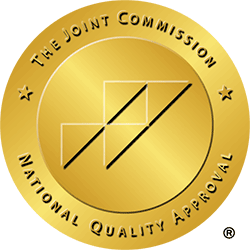
Trauma can have a profound and lasting impact on an individual’s mental and emotional well-being. Whether it’s the result of a single event or prolonged exposure to distressing situations, trauma can lead to a range of psychological issues, including anxiety, depression, PTSD, and more. At BriteLife Recovery, we understand the complexities of trauma and offer a variety of therapeutic approaches to help individuals heal and move forward. This blog explores the different types of therapy available for trauma and how they can support recovery.
1. Cognitive Behavioral Therapy (CBT)
Cognitive Behavioral Therapy (CBT) is one of the most widely used approaches for treating trauma. It focuses on identifying and challenging negative thought patterns and behaviors that contribute to emotional distress. CBT helps individuals understand the connection between their thoughts, feelings, and actions, enabling them to develop healthier coping mechanisms.
For trauma survivors, CBT can be particularly effective in addressing the distorted beliefs and fears that often arise after a traumatic event. By working with a therapist, individuals can learn to reframe their thoughts, reduce anxiety, and regain control over their lives.
2. Eye Movement Desensitization and Reprocessing (EMDR)
Eye Movement Desensitization and Reprocessing (EMDR) is a specialized therapy designed to help individuals process and integrate traumatic memories. During EMDR sessions, the therapist guides the individual through recalling distressing memories while simultaneously engaging in bilateral stimulation, such as eye movements, taps, or sounds.
The goal of EMDR is to reduce the emotional intensity of traumatic memories, allowing individuals to process them in a way that no longer triggers distress. EMDR has been shown to be highly effective for treating PTSD and other trauma-related conditions, often leading to significant improvements in a relatively short period of time.
3. Trauma-Focused Cognitive Behavioral Therapy (TF-CBT)
Trauma-Focused Cognitive Behavioral Therapy (TF-CBT) is a form of CBT specifically designed for children and adolescents who have experienced trauma. TF-CBT incorporates traditional CBT techniques along with trauma-sensitive interventions that address the unique needs of younger individuals.
TF-CBT typically involves both the child and their caregiver, fostering open communication and providing support for the entire family. The therapy helps children and teens process their trauma, develop coping skills, and build resilience, while also addressing any behavioral issues that may have arisen as a result of the trauma.
4. Dialectical Behavior Therapy (DBT)
Dialectical Behavior Therapy (DBT) is another effective approach for treating trauma, particularly in individuals who struggle with intense emotions, self-harm, or suicidal thoughts. DBT combines elements of CBT with mindfulness practices, focusing on building skills in four key areas: emotional regulation, distress tolerance, interpersonal effectiveness, and mindfulness.
For trauma survivors, DBT can help manage overwhelming emotions and reduce harmful behaviors. By learning to tolerate distress and stay grounded in the present moment, individuals can gain greater control over their reactions and begin to heal from their trauma.
5. Somatic Experiencing
Somatic Experiencing is a body-oriented therapy that focuses on releasing the physical tension and energy associated with trauma. Trauma often manifests in the body as chronic pain, tension, or other physical symptoms, and Somatic Experiencing helps individuals become more aware of these sensations and gradually release them.
Through guided exercises and gentle movement, Somatic Experiencing allows individuals to process trauma in a way that honors the connection between mind and body. This approach can be particularly beneficial for those who find it difficult to talk about their trauma or who experience significant physical symptoms as a result of their experiences.

At BriteLife Recovery, we offer a range of therapeutic approaches to help individuals heal from trauma. Whether it’s through Cognitive Behavioral Therapy, EMDR, DBT, or another modality, our experienced therapists work closely with each client to develop a personalized treatment plan that meets their unique needs. Healing from trauma is a journey, and with the right support, it is possible to reclaim your life and move forward with hope and resilience.
If you or a loved one is struggling with the effects of trauma, contact BriteLife Recovery today to learn more about our trauma-focused therapies and how we can help you on your path to recovery.
SPEAK WITH AN ADDICTION SPECIALIST


